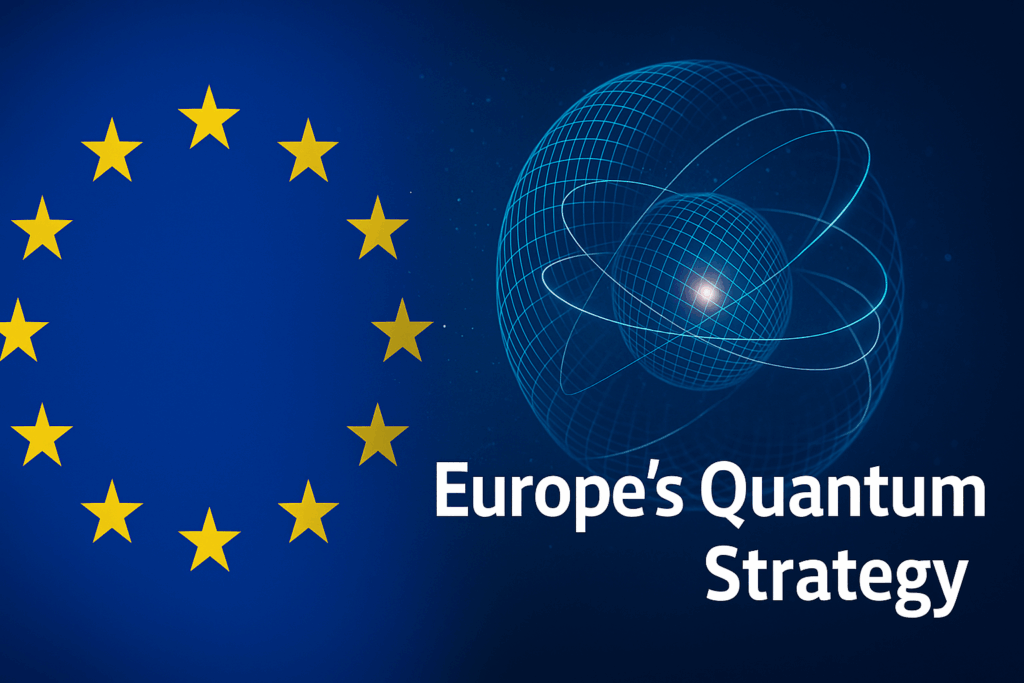Insider Brief
- The following piece, written by Jarryd Daymond Lecturer, University of Sydney, appeared in the global research blog, The Conversation.
- Daymond explains Australia’s National Quantum Strategy and its importance in mastering quantum technologies.
- Critical Quote: To make the most of the power of quantum technology, we need to be proactive, focus on the public good, and think about it from many perspectives to ensure “responsible innovation”. — Jarryd Daymond
Imagine a world where computers can solve complex problems in seconds, making our current devices seem like mere typewriters. These supercomputers would revolutionise industries, create new medicines, and even help combat climate change.
Imagine as well we could observe the workings of our own bodies in unprecedented detail, and communicate online without fear of hacking. This may be starting to sound like a sci-fi novel, but quantum technologies have the potential to make it all real.
Australia has just unveiled its first National Quantum Strategy. The strategy aims to make Australia “a leader of the global quantum industry” by 2030, by encouraging research, applications and commercialisation.

So what does that actually mean?
What are quantum technologies?
Quantum technologies build on the science of quantum mechanics, which studies the behaviour of subatomic particles at a microscopic scale.
At this level, particles behave strangely: they can exist in multiple states simultaneously (called superposition), and be “entangled” with each other. When particles are entangled, their properties are linked together regardless of the distance between them.
Quantum technologies make use of these counterintuitive properties to achieve things that might otherwise be impossible. Three main areas of quantum technology are gaining the most attention: quantum sensing, quantum communications, and quantum computing.
Quantum sensing can detect tiny changes in the environment, measuring things like gravity, magnetic fields and temperature with incredible accuracy. This technology could have a huge impact on industries like healthcare, mining and navigation.
For instance, quantum sensors may be able to help us detect early signs of diseases in our bodies and locate valuable minerals hidden deep underground.
Unlike traditional computers, which store and process information using bits (zeroes and ones), quantum computers use “qubits”, which can exist as zeroes, ones, or combinations of both at once.
Fully functioning quantum computers don’t exist yet – but scientists believe they will be able to perform certain kinds of calculations at lightning speed, solving some problems that would take today’s computers millions of years to crack. This would have huge implications for fields including cryptography, AI, drug discovery and climate modelling.
Researchers are also working on super-secure quantum communication networks that are almost impossible to hack or eavesdrop on. On networks like these, attempts to intercept messages would be instantly detectable to the sender and the receiver.
The quantum race
Australia’s National Quantum Strategy sees us join other countries and regions, racing to unlock the potential of quantum technology and dominate the market. The United States, China, and Europe are investing billions of dollars in quantum research and development.
If Australia wants to keep up, it needs to act now. But why is keeping up so important?
First, we don’t want to be left behind in the rapidly growing quantum technology industry. According to CSIRO projections, the quantum industry could be worth A$4.6 billion by the end of the decade. By 2045, it might employ as many people as the oil and gas sector does today, with revenues of $6 billion and 19,400 direct jobs.
As other nations push forward, Australia risks missing out on the potential economic benefits. We could also lose talented workers to countries that are investing more in quantum research. Projects like the ambitious attempt to build the world’s first complete quantum computer aim to provide local opportunities and funding alongside their top-line goals.
Moreover, Australia has a responsibility to ensure quantum technologies are developed and used ethically, and their risks managed.
For example, quantum computers could enable hackers to break existing encryption protocols, leaving internet services vulnerable. Data harvesting by companies is already a concern, and quantum computing could exacerbate this issue. Even national security could be jeopardised by quantum decryption.
Responsible innovation
To make the most of the power of quantum technology, we need to be proactive, focus on the public good, and think about it from many perspectives to ensure “responsible innovation”.
Collaboration and broad dialogue will be necessary. Conversations between experts in fields like quantum computing, cybersecurity, ethics and social sciences – perhaps via regular conferences or workshops – will help us tackle the technical and ethical risks.
Engaging with society and focusing on the public good will also be essential. The public must be involved in discussions to ensure new quantum technologies benefit everyone, not just businesses. Town hall meetings, public forums or online chats can help scientists, policymakers and citizens share views.
And we must make sure that “responsibility” always sits right alongside “innovation” in quantum technologies. Organisations working on quantum tech could have “responsible quantum committees” to address risks and involve stakeholders, ensuring responsible innovation in quantum technology.
Success in quantum technology will be all about striking the right balance: encouraging both innovation and responsibility. By investing in quantum technology and working together to ensure its responsible development, Australia can continue to be a leader in scientific innovation while benefiting from these emerging technologies’ transformative potential.
Australia’s National Quantum Strategy is a step in this direction.
From The Conversation.
For more market insights, check out our latest quantum computing news here.
















